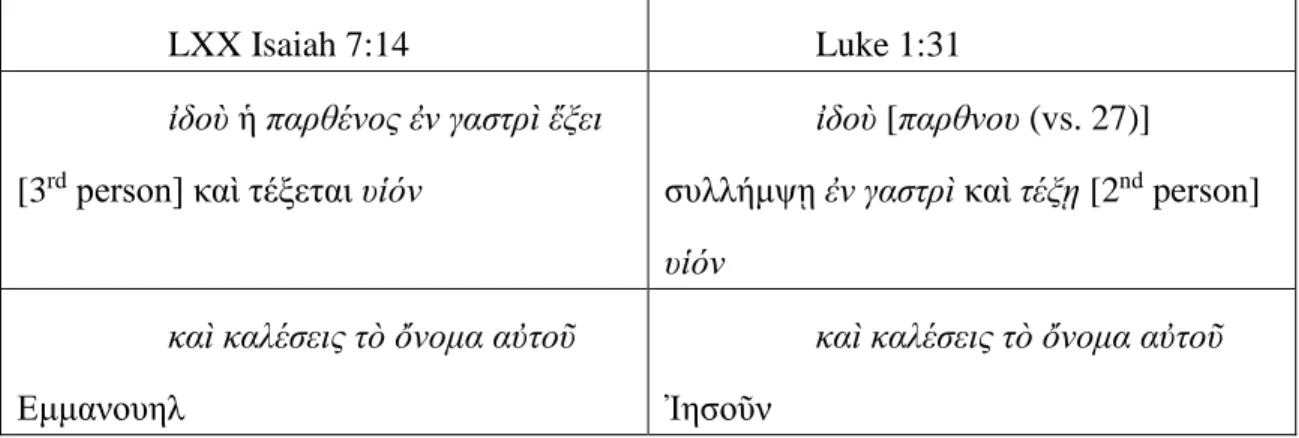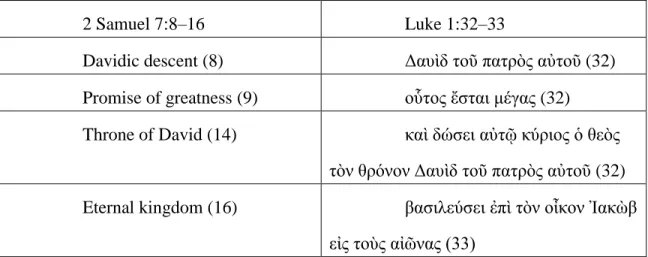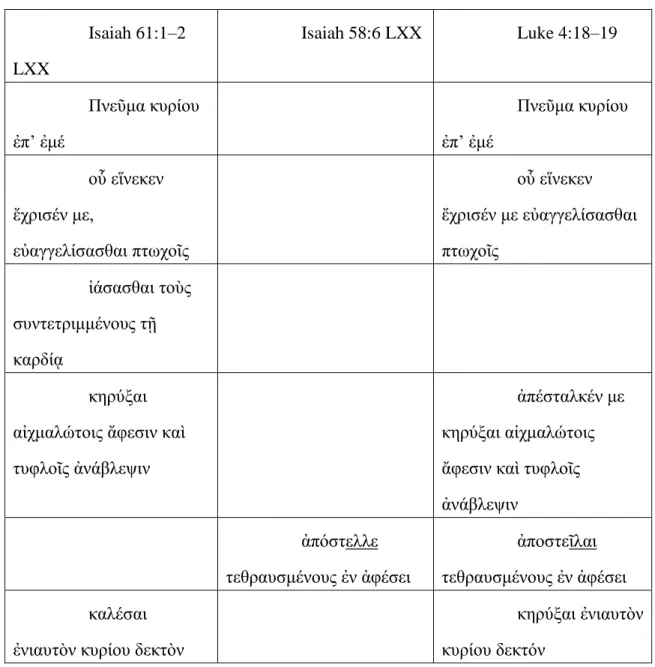ISAIAH: VISIONS OF SOCIAL JUSTICE RESTORATION
This text contains the first appearance of the word pair in the book "How. The context in this important part of the book reveals that it is society's sins that grieve Yahweh. The story of Gomorrah appears on the wings of the angelic news that she brought to Abraham and Sarah that they would have a son.
The Lord said: "Shall I hide from Abraham what I want to do, since Abraham will certainly become a great and mighty nation, and all the peoples of the earth will be blessed in him. For I have chosen him to command his children and his house after him to keep the LORD's way by doing ה ָּק ָּד ְׁצ and ט ָּפ ְׁש ִמ, so that the LORD may bring Abraham what he has promised him. ". The form of the word occurring with zayin occurs in Proverbs 21:13 in reference to those who close their ears to "the cry of the poor." Both words get similar definitions: קעצ 1.
27 The Hebrew and Aramaic Lexicon of the Old Testament states that קז "is probably a dialectal subform of the word [קׂצ]". Ludwig Köhler et al., The Hebrew and Aramaic Lexicon of the Old Testament (New York: Brill, 1994)., s.v. Thus, as early as the first chapter of the book, emphasis is placed on the necessity of social justice (righteousness and justice) within the framework of Isaiah's indictment, destruction and restoration.
This reversal of expectation, Williams writes, emphasizes the point of the poem: Yahweh's disappointment with the outcome of his people. 31The Hebrew-Aramaic Lexicon of the Old Testament notes the play on words with this word, where the definition can be rendered as "legal infringement" in parallel with ת ָּפ ְׁשׁ ִמ as "legal". Because ה ָּק ָּד ְׁצוּ ט ָּפ ְׁש ִמ appears in the last stanza of the parable, and is structured to parallel the rotten grapes of verse 2, it stands as a kind of punchline: Israel's rottenness is their lack of social justice .
Those who were the rightful inheritors of the land were oppressed, perhaps sold into slavery to wealthy landowners.33. Apparently made according to the laws of the market and according to the statute, [it was] all strictly legal—. This is a powerful demonstration of the parable of the vineyard at work: the outward form of the appropriation of the land is all legal, but utterly corrupt—the productive harvest upon closer inspection is rotten. Leclerc, God is Exalted in Justice, 59–60.
Bernhard Lang, "The Social Organization of Peasant Poverty in Biblical Israel," Journal for the Study of the Old Testament Sheffield, no. 35 For more on the oppression of the weak and downtrodden by the decadent ruling class in this passage, see H.
11:4
Therefore, at the height of Israel's history, when David ascended the throne, Scripture testifies: "And David administered ט ָּפ ְׁש ִמ and ה ָּק ָּד ְׁצ for all his people." The king was responsible for establishing justice in the land, and Scripture presents David as a good king. Somewhat analogous to the responsibilities of Israelite kings, other kings in the ancient East used their ascension to the throne to establish justice and equality in the land. For example, Hammurabi says in the prologue to his law code that its purpose is that the strong do not oppress the weak.42 The king would establish justice both negatively—.
For example, the Egyptian pharaoh Haremheb says at the beginning of his edict that he simultaneously establishes justice and destroys the unjust oppressor.43. A king who would rule justly and righteously was the ideal, but Israel and Judah in Isaiah's day had departed greatly from God's commandments. Nevertheless, the description of the king in Isaiah 9:7 gives hope; Yahweh would once again place someone on the throne of Israel who would rule as David did, in justice and righteousness, according to Yahweh's revealed will.
And the Spirit of the Lord shall rest upon him, of wisdom and He shall not judge by what his eyes see, nor settle disputes by what his ears hear, but with. This king, like the kings of the ancient world, establishes justice both positively, by his just judgments on behalf of the oppressed, and also negatively, by punishing the oppressors.45.
Thus, the Messianic king described by Isaiah will be a Davidic descendant who will establish justice and righteousness as an important part of his empire.
Note the way the reign of the king and his rulers is described first with the hendiadys for social justice (verse 1), then with the imagery of "shelter", "shelter", "streams of water in a dry place", and "shadow 47 Storm and heat can be life-threatening in the land of Israel and are used as metaphors of the dangers the people faced. The righteous rulers, rising in their stead, provide security through their righteousness and justice to those who are oppressed by oppressors The warning describes desolation with the language of barren (Isa 14 describes a completely desolate and barren land.
The reversal of restoration, post-destruction, comes only with the Spirit: "[All this will be the case until] the Spirit is poured out upon us from the high and the wilderness. The image of fruitfulness and barrenness, in a parallel structure, is the key to Isaiah 32: (A) Fruitfulness: the rulers are described as a shelter and stream bringing safety and fruitfulness/prosperity with their reign of righteousness and justice (Is 32). :1-2). B) Barrenness: the warning to the foolish makes use of the language of desolation through metaphors of fruitlessness, including the language of “grape harvest.” Finally, (Aˊ) in 32:15, the passage returns to the metaphor of fruitfulness that it began with in verse 1—but instead of a flowing stream, that the poured out Spirit that brings.
As the king and the princes ruled in righteousness and justice, so the result of the outpouring of the Spirit is justice and righteousness. Therefore, the Spirit must be associated with the just and righteous rule of the good leaders of verse 1. However, the difference between Isaiah 5 and 32 is the addition of the figure of the king and the outpouring of the Spirit.
Through his reign, the Spirit will be poured out so that justice and righteousness will be abundantly present - fruitfulness will be the norm. 51. Thus it is the reign of the king and the presence of the Spirit that together bring about social justice as the fruitful fruit of a restored community. 50 I believe that Isaiah intended polyvalence in his imagery in 32:9-14: the desolation is described as true barrenness in the land.
But this unfruitfulness is contrasted with the fruitfulness of justice and righteousness in the restoration in v. 19, although Sweeney associates only the abundant fruitfulness of the Spirit with the king, while Oswalt correctly recognizes that through the king the Spirit is poured out more widely upon the populace. Sweeney, Isaiah 1–39: With an Introduction to Prophetic Literature, Old Testament Literary Forms 16 (Grand Rapids: Eerdmans.
LUKE: THE MINISTRY AND EMPOWERMENT OF
ACTS: THE SPIRIT AND THE JUST KINGDOM
59:21
For my thesis it is important to note that Luke's portrayal of the community occurs in a key place in the book of Acts - immediately after the ascension of Christ and the outpouring of the Spirit. Moreover, another way to reconcile my thesis with Luke's identification of the Spirit with Joel's prophecy is through Turner's conclusions regarding the Spirit of prophecy. Turner argues that Luke specifically identifies the Spirit of prophecy as the element that Peter extends to those who would believe the message of the gospel in Acts 2:28–39.
These parallels lead to the conclusion that Luke's wording of the outpouring of the Spirit is connected to the role of the Spirit in the restoration of Israel in Isaiah through the use of similar language.4 The result of that of the Spirit. So while Joel's quote shows Luke's primary concern is to connect prophecy with the power of the Spirit, ethical restoration is a result of the prophetic empowerment of the Spirit. As we shall see, righteousness and righteousness is also the result of Luke's description of that of the Spirit.
The second clue that Luke has ethical restoration in mind comes from several prominent parallels with Ezekiel 37 in this passage.5 Ezekiel 37 communicates a time when God's people will be restored to life by the Spirit and then reunited as one people become In Acts 2:33, the Spirit of restoration comes upon the people only after the exaltation of the Davidic Messiah, whom Luke shows throughout his gospel as a socially just king. It is only when Yahweh rises and brings salvation to his people that the Spirit is then promised (Is 59:21) with the result that social justice continues (at least one aspect of the glory in Is 60:1–3).
Thus, both Acts and Isaiah share a similar storyline: the just and righteous king is strongly associated with the outpouring of the Spirit, resulting in social justice. 9The Spirit of restoration is expected in texts like Isa Until the Spirit is poured out upon us from above, and the wilderness becomes a fertile field, and the fertile field is reckoned a forest. In all these texts righteousness and righteousness are intimately connected with the Spirit - first in His work in the Messiah, and then, through the reign of the righteous king, the restoration grows outward.
This connection is seen especially in Isaiah 32, where the rule of a righteous king precedes the outpouring of the Spirit. He received the Spirit because of his righteousness and justice, and he distributes the Spirit with the result of more. These observations bring my argument one step closer to demonstrating that Luke intends to show that the exalted Davidic Messiah reigns in righteousness and justice and pours out his Spirit for the ethical restoration of the people in social justice according to Isaiah 32:15 .
The Socially Just Community
CONCLUSION: THE TREE AND THE KINGDOM


